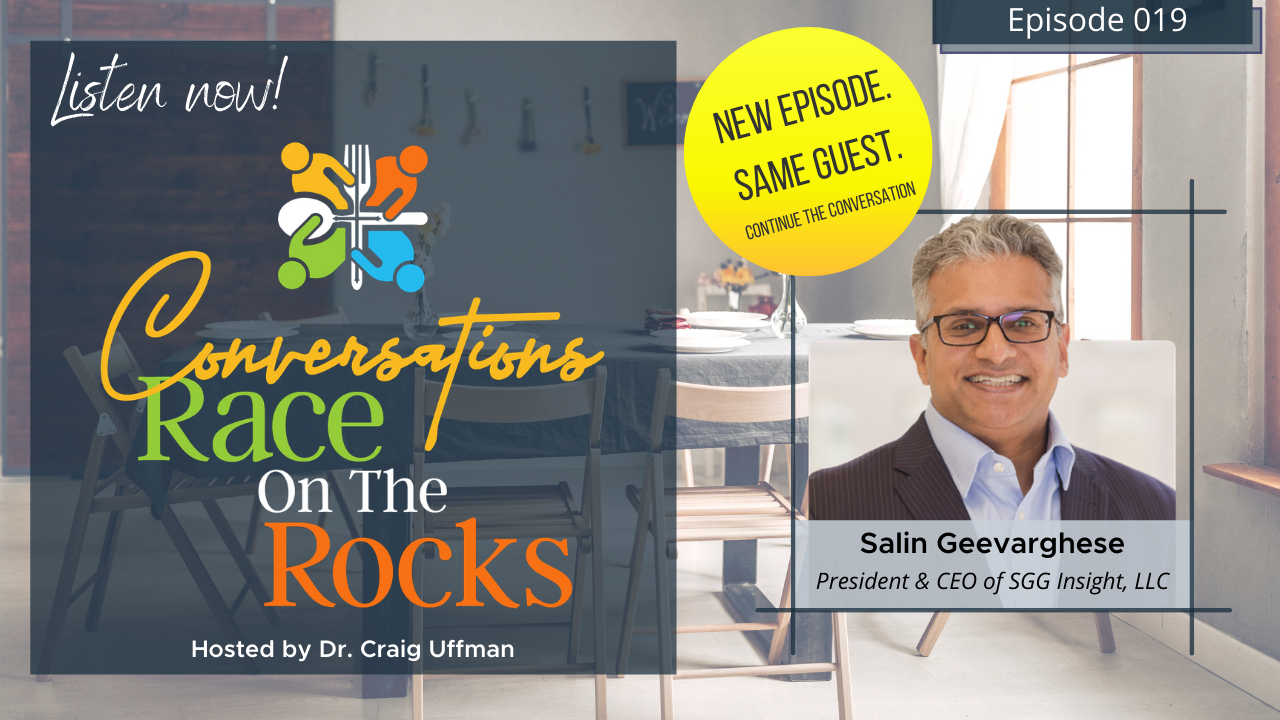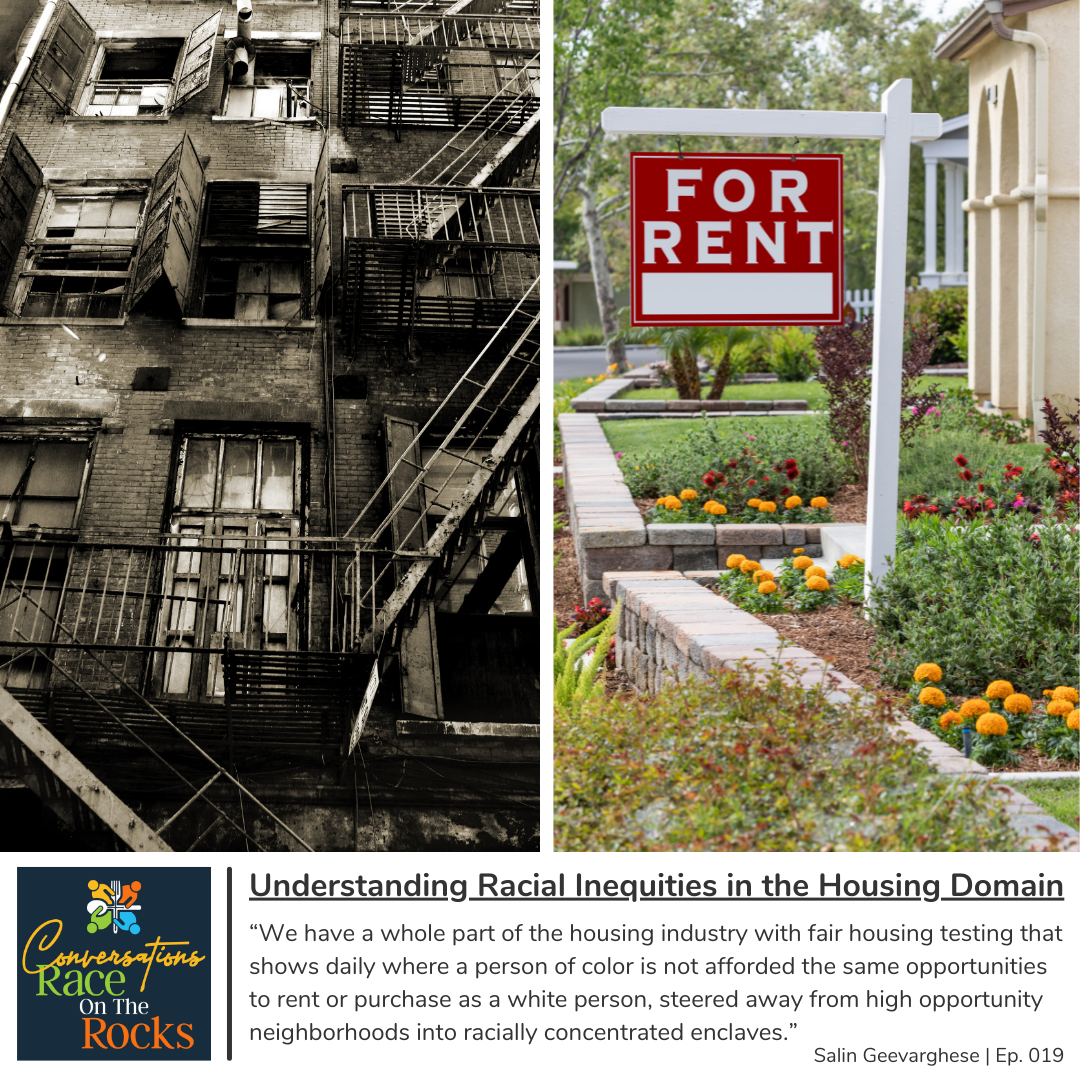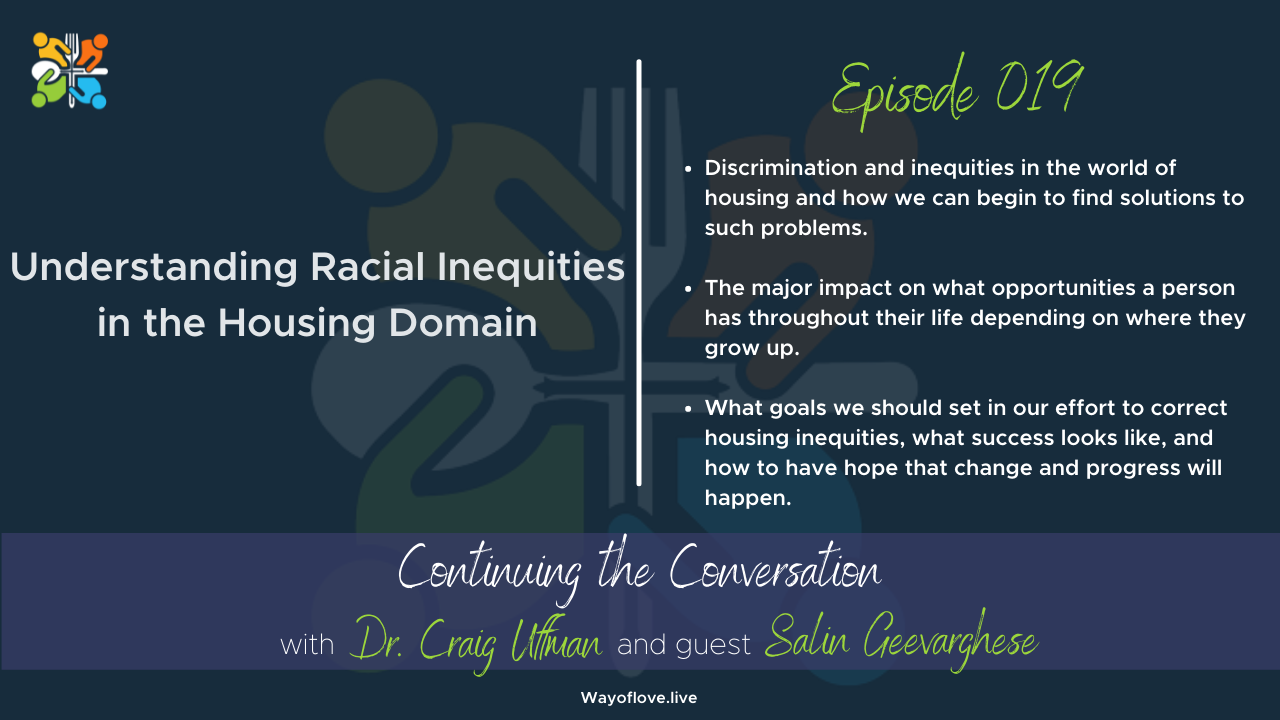“...Look, we have ordered our society where certain people are more valuable than other people, and that rubs up against our sense of values, of fairness, equal justice under the law...” - Salin Geevarghese
Listen now on Spotify, Apple Podcasts, Google Podcasts, Stitcher and more!

Returning to the conversation is Mr. Salin Geevarghese, whom you may remember having been a guest on the very first episode of the podcast. Salin, as a reminder, is a man with many hats but is probably best known for being a deputy assistant secretary at the Department of Housing and Urban Development for President Obama and his administration. He is currently one of the world's foremost experts in the art of bringing opposing groups together to transform racially polarized pockets of urban blight into inclusive cities.
Salin's credentials make him the perfect guest to help us start our exploration of the stories that have shaped the racial landscape with which we currently wrestle, and this episode particularly dives into discrimination and inequities in the world of housing and how we can begin to hopefully find solutions to such problems. Although we will talk more about the hope and the possible solutions in our next episode, Salin begins to touch upon that near the end of this episode, sharing that new coalitions pushing for progress and the celebration of diversity gives him hope.
Salin gives us such a great introduction into the racial inequities that persist even today in the domain of housing. I hope that you will join us in our next episode as we continue this conversation, drilling more deeply into the challenges that have been brought about by our history of discriminatory policies. We will also begin to talk more deeply about hope and promising solutions. Thank you for listening, and be sure to invite your friends to listen in as well!
Questions for Clergy and Other Group Leaders
- As we seek to create diverse, inclusive communities in which all have a sense of belonging, what would success look like?
- Why are distressed neighborhoods so hard to turn around?
- What kind of progress can we celebrate in healing housing inequities since the 1960s civil rights legislation?
- How does bias remain a factor in where we live in such a way that, even in the 2020s, it determines the life chances of whites and non-whites differently?

Show Notes
[4:18] – Salin begins by giving us an update on some of the challenges that still need to be confronted today when it comes to inequities in housing.
[7:16] – Salin comments on what goals that we should set and what success would look like, starting with physical transformation.
[8:55] – The second stage of success is the ability for new neighborhoods to attract and hold on to diverse residents.
[10:57] – Salin explains what the last stage of success is – addressing the unfinished business that we still actually have and questioning who is benefitting from what we are seeing.
[12:40] – We learn why it tends to be so difficult to reverse the situation for distressed neighborhoods.
[15:54] – Craig and Salin discuss hierarchies of human value and how Salin defines it.
[18:44] – Salin discusses what progress that we can celebrate that we have seen over the last several decades.
[20:22] – We have seen a rise in wealth in the United States, but the problem is that the wealth is concentrated.
[21:48] – Salin confidently asserts that implicit bias definitely plays a role in the problem of racially disparate housing.
[23:21] – Salin assures Dr. Uffman that implicit bias still plays a role a century after the 1920s and gives concrete examples.
[25:54] – Segregation continues to persist today, and the country is, in fact, resegregating.
[27:58] – Dr. Raj Chetty, the youngest professor to receive tenure at Harvard, has given us hard data that both sides of politics can agree on.
[30:17] – Where you grow up has a major impact on what opportunities that you have throughout life.
[31:53] – Salin encourages listeners to look at Dr. Chetty's research on Opportunity Insights.
[34:16] – Salin talks about his hope that we will see progress and change in our lifetimes due to progress that has already been made and unfinished business that we have yet to do.
[37:08] – Hope is very necessary right now because solidarity is constantly under attack.
Links and Resources
Connect with Dr. Craig Uffman:

